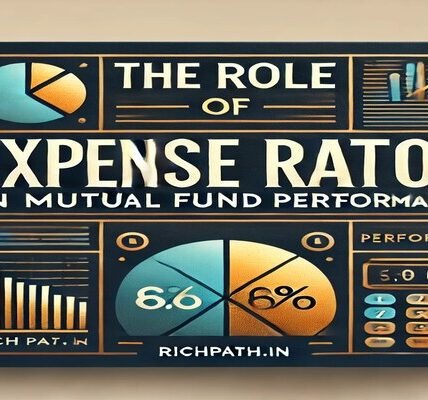
Investing is a crucial step toward financial freedom, and two of the most popular investment options in India are mutual funds and direct stock market investments. While both avenues offer growth potential, their risk levels, return consistency, and investment strategies differ.
In this article, we analyze mutual fund returns in comparison to stock market investments, helping you determine which is better suited for your financial goals.
Understanding Mutual Funds and Stock Market Investments
What Are Mutual Funds?
Mutual funds pool money from multiple investors to create a diversified portfolio of stocks, bonds, or other securities. These funds are managed by professional fund managers who aim to generate the best possible mutual fund returns while minimizing risk.
Key Features of Mutual Funds:
✔ Professionally Managed: Experts handle the investment strategy.
✔ Diversified Portfolio: Reduces risk compared to investing in individual stocks.
✔ Flexible Investment Options: Investors can choose between lump-sum and SIP investments.
What Is Stock Market Investing?
Stock market investing involves directly buying shares of individual companies. Investors participate in a company’s growth and profits based on stock price appreciation and dividends.
Key Features of Stock Market Investing:
✔ Higher Return Potential: Individual stocks can deliver substantial profits.
✔ Requires Market Knowledge: Investors must analyze companies and market trends.
✔ High Volatility: Stock prices fluctuate based on market conditions.
Mutual Fund Returns vs. Stock Market Returns
How Are Mutual Fund Returns Calculated?
Mutual fund returns depend on the performance of the underlying assets and fund management strategy. The most common return measures include:
- Annualized Returns: The percentage gain or loss over a year.
- Compounded Annual Growth Rate (CAGR): The rate at which an investment grows over time.
- Absolute Returns: The percentage change in investment value.
Types of Mutual Fund Returns
| Mutual Fund Type | Expected Returns (Annualized) | Risk Level |
|---|---|---|
| Equity Mutual Funds | 10-15% | High |
| Debt Mutual Funds | 5-8% | Low |
| Hybrid Mutual Funds | 7-12% | Moderate |
For example, HDFC Equity Fund has historically provided 12% CAGR over five years, demonstrating the potential of mutual fund returns in long-term wealth creation.
Stock Market Returns
Returns from stock market investments depend on factors like company performance, market trends, and investor sentiment.
| Stock Type | Expected Returns (Annualized) | Risk Level |
|---|---|---|
| Blue-Chip Stocks | 8-12% | Moderate |
| Mid-Cap Stocks | 12-18% | High |
| Small-Cap Stocks | 15-25% | Very High |
Stocks like Reliance Industries and TCS have delivered strong long-term returns, but market fluctuations make direct stock investments riskier.
Pros and Cons of Mutual Fund Returns
Pros of Mutual Fund Returns
✅ Diversification: Mutual funds invest in multiple stocks or assets, reducing individual stock risk.
✅ Professional Fund Management: Experienced managers handle investments, ensuring better mutual fund returns.
✅ SIP Investment: Systematic Investment Plans (SIPs) help investors invest small amounts regularly, reducing risk.
✅ Tax Benefits: ELSS mutual funds provide tax savings under Section 80C while delivering strong mutual fund returns.
Cons of Mutual Fund Returns
❌ Expense Ratio: Fund management fees reduce net returns.
❌ Limited Control: Investors cannot choose individual stocks within a mutual fund.
❌ Market Dependency: Mutual fund returns fluctuate based on overall market performance.
Pros and Cons of Stock Market Returns
Pros of Stock Market Returns
✔ Higher Growth Potential: Stocks like Infosys and Titan have provided over 1,000% returns over decades.
✔ Control Over Investments: Investors choose specific companies to invest in.
✔ Liquidity: Stocks can be bought and sold instantly.
✔ Dividend Income: Some stocks provide dividends, adding to overall earnings.
Cons of Stock Market Returns
❌ High Risk: Market downturns can lead to significant losses.
❌ Requires Expertise: Stock investing demands knowledge and research.
❌ Emotional Investing: Fear and greed often lead to impulsive investment decisions.
❌ No Diversification: Direct stock investments lack the risk protection of mutual funds.
Mutual Funds vs. Stock Market: Which Should You Choose?
Who Should Invest in Mutual Funds?
✔ Beginners looking for professionally managed investments.
✔ Risk-averse investors seeking stable mutual fund returns.
✔ Long-term investors planning for retirement or wealth creation.
Who Should Invest in Stocks?
✔ Experienced investors with market knowledge.
✔ High-risk takers seeking potentially higher returns.
✔ Active participants who can monitor stock market trends.
Indian Examples of Mutual Fund Returns vs. Stock Market Returns
Mutual Fund Example
- SBI Bluechip Fund: Delivered a 5-year CAGR of 13%.
- ICICI Prudential Equity & Debt Fund: Balanced hybrid fund with consistent mutual fund returns of 10-12%.
Stock Market Example
- IRCTC: Delivered multi-fold growth post-IPO.
- Reliance Industries: Consistent performer in the Indian stock market.
Tax Implications: Mutual Fund Returns vs. Stock Market Returns
Mutual Funds
- Equity Mutual Funds: LTCG above ₹1 lakh taxed at 10%; STCG taxed at 15%.
- Debt Mutual Funds: LTCG taxed at 20% with indexation; STCG taxed as per income slab.
Stock Market
- Capital Gains Tax: Similar to equity mutual funds (10% LTCG, 15% STCG).
- Dividend Taxation: Taxed as per the investor’s income slab.
Key Differences: Mutual Funds vs. Stock Market
| Factor | Mutual Funds | Stock Market |
|---|---|---|
| Risk | Lower due to diversification | Higher due to market fluctuations |
| Returns | Moderate to high | Potentially very high but riskier |
| Expertise Needed | Minimal (professionally managed) | High (requires research) |
| Liquidity | Easy redemption (T+3 days) | Immediate (market hours) |
| Investment Amount | Start with ₹500 SIP | Higher for meaningful stock diversification |
Conclusion: Mutual Fund Returns vs. Stock Market Returns
Both mutual funds and stock market investments offer distinct advantages. If you seek consistent mutual fund returns with lower risk and professional management, mutual funds are ideal. On the other hand, if you have market expertise and can handle volatility, stock market investments may offer higher rewards.
The choice ultimately depends on your financial goals, risk tolerance, and investment experience.
For expert financial insights, visit Rich Path. and start your investment journey today! 🚀
Read more –
Top 5 Mutual Funds for Long-Term Growth in India in 2025
Best Mutual Funds: How to Choose – A Complete Guide
Best Flexi Cap Mutual Funds to Invest in 2025
Disclaimer:
This article is for educational purposes only and does not constitute financial advice. Mutual fund investments are subject to market risks. Consult a certified financial advisor before making investment decisions.



